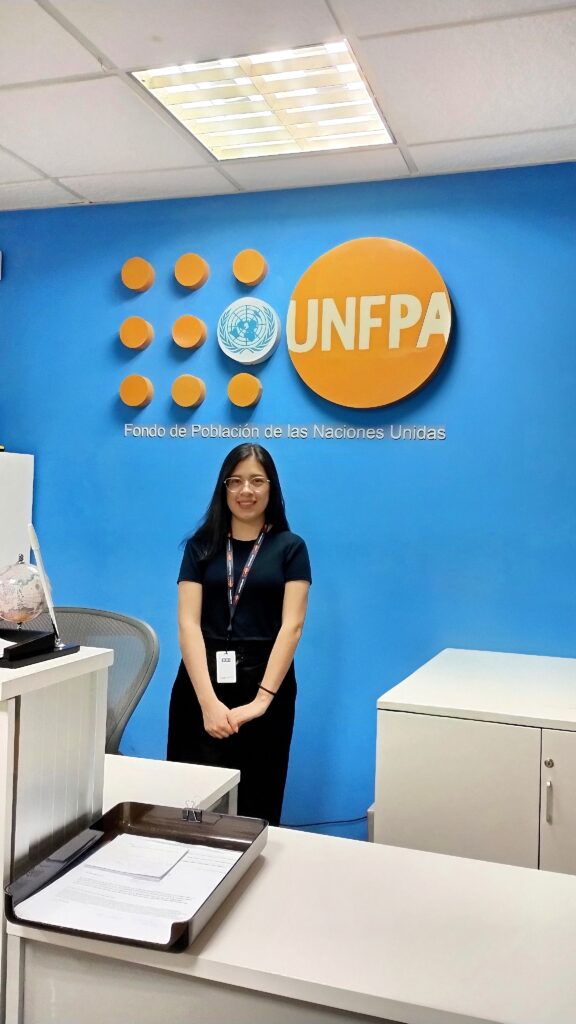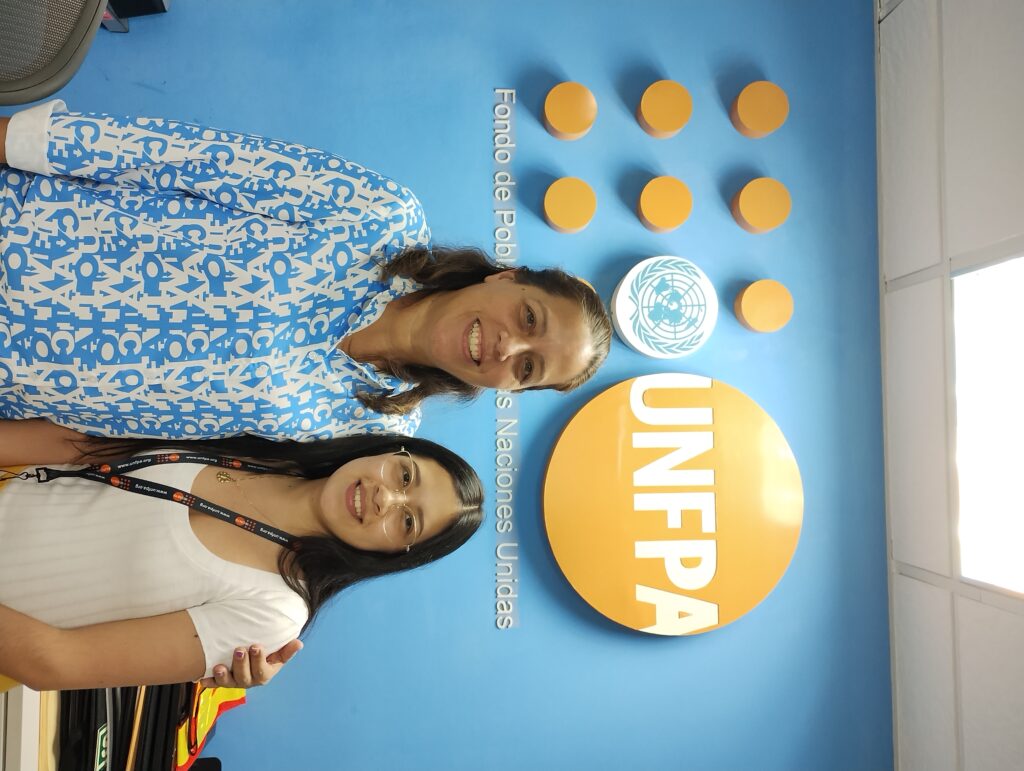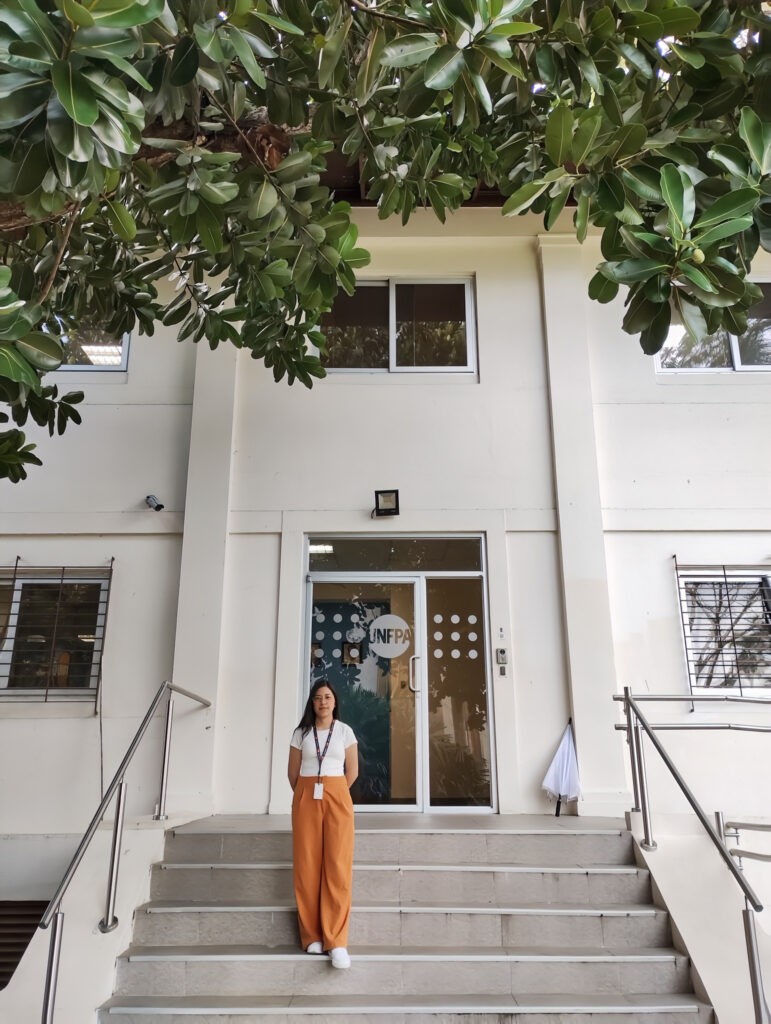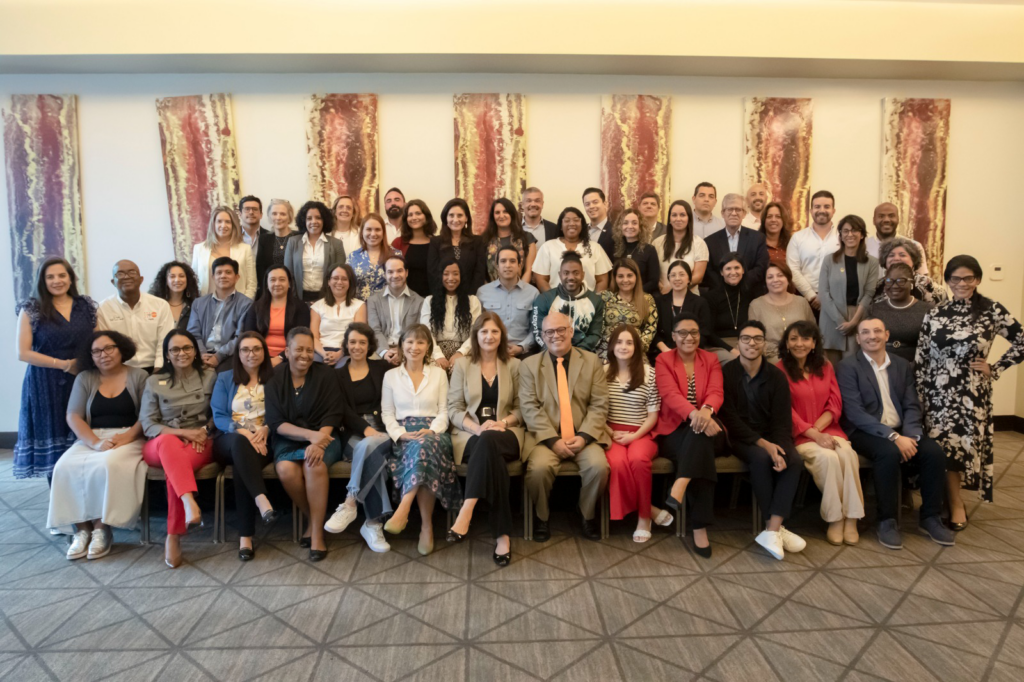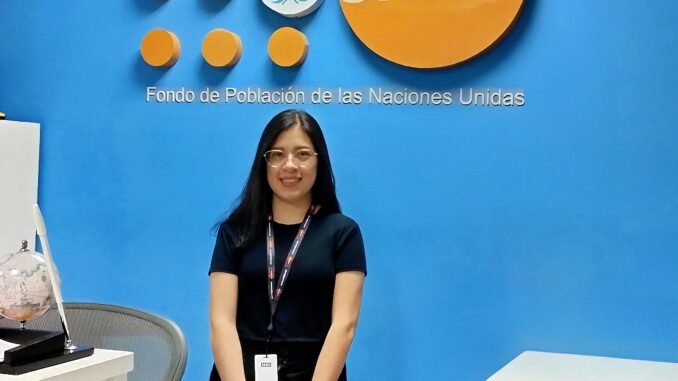
Over the summer, I had the opportunity to intern with UNFPA’s Regional Office for Latin America
and the Caribbean in Panama City, Panama, sponsored by UNA-NYC and IPED’s Summer
Funding. The United Nations Population Fund (UNFPA) is the sexual and reproductive health
agency of the UN and works to deliver a world where every pregnancy is wanted, every
childbirth is safe, and every young person’s potential is fulfilled. The Regional Office for Latin
America and the Caribbean coordinates and supports the activities of over 30 national offices to
achieve this goal, guided by the 1994 Programme of Action of the International Conference on
Population and Development (ICPD) and partnering with governments, civil society, and other
agencies to advance its mission across five areas: Sexual and Reproductive Health, Young
People, Human Rights and Gender Equality, Population and Development, and Humanitarian
Response.
As an intern in Data-Driven Storytelling for Population and Development, I worked on
collaborative and independent projects between the Media & Communications and Population &
Development teams under the supervision of Norha Restrepo – Regional Communications
Advisor, and Sabrina Juran – Regional Technical Advisor on Population and Development. The
main product was a joint communication strategy on population issues; however, the number of
activities that I had the opportunity to work on with both teams during my three months in
Panama was much more extensive.
With the Media & Communications team, I supported the creation of content that showcases
UNFPA’s positive impact in the region positions the agency as an authority and preferred
partner in sexual and reproductive health and rights and population dynamics. Either creating
content for social media, monitoring how UNFPA is covered across multiple platforms, or
organizing events such as the Communications, Partnerships, and Resource Mobilization
Regional Workshop and the exhibition Intertwined Lives, Threads of Hope at the Fifth Regional
Conference on Population and Development, the work with the Media & Communications team
was a dynamic and creative experience that highlighted the importance of humanizing data and
UNFPA’s achievements in crafting messages that connect with diverse audiences and foster
partnerships for development.
On top of this, I had the chance to work intensively with the Population & Development team,
which provides technical and financial support to National Statistics Offices (NSO) across the
region to prepare, conduct, and process demographic information retrieved from national
censuses. Recognizing that individual reproductive choices multiplied by communities and
countries can alter population structures, migration patterns, economic growth, the environment,
and overall sustainable development, the P&D team also provides studies and methodologies to
further research these trends, with aims at informing decision-making centered on human rights
within the UN System, governments, civic society, and other sectors.
As such, I spent a significant part of my internship calculating indicators of value to UNFPA’s
mandate and creating a Regional Atlas that assesses the progress of the three transformative
results in the region: ending the unmet need for family planning, preventable maternal deaths,
and gender-based violence and harmful practices. One of my favorite projects was obtaining the
windows of opportunity or demographic dividends – periods of potential economic growth when
the ratio between the dependent and working population is low – at the regional, subregional,
and national levels. By identifying timelines and creating graphs and maps, we were able to
visualize how this phenomenon is manifesting unevenly among countries, writing a report that
addresses this challenge and calls for action to include demographic resilience in the population
policies and projects that address this topic.
Much of the other research I did for P&D focused on supporting national statistical capacity. This
included updating and summarizing the Guide for the Implementation of Population Situation
Analysis in the region, supporting the planning of a Research and Analysis Unit within El
Salvador’s National Statistics and Census Office, and providing affected population estimates
for emergency responses in the wake of Hurricane Beryl. These experiences culminated in a
comprehensive document that consolidates the knowledge I acquired from P&D and M&C by
highlighting the value of population data across various sectors and outlining key messages for
effective partnerships and resource mobilization in the face of the growing backlash against
sexual and reproductive health and rights.
I am profoundly grateful for the opportunity to contribute to such meaningful work. My time in
Panama allowed me to put into practice a lot of the knowledge I gained from my IPED
coursework, particularly from topics seen in Econometrics and Foreign Aid. It has also
expanded my understanding of demographic issues and methods to study them, deepening my
appreciation for their critical role in driving sustainable development. Getting such a clear picture
of the population issues and opportunities of each country in Latin America and the Caribbean,
guided by incredibly experienced and welcoming colleagues who share the same passion for
the well-being and development of our region, has been inspiring both personally and
professionally. I leave this experience with a renewed commitment to using data to create
positive change and a strong belief in the power of evidence-based decision-making.
